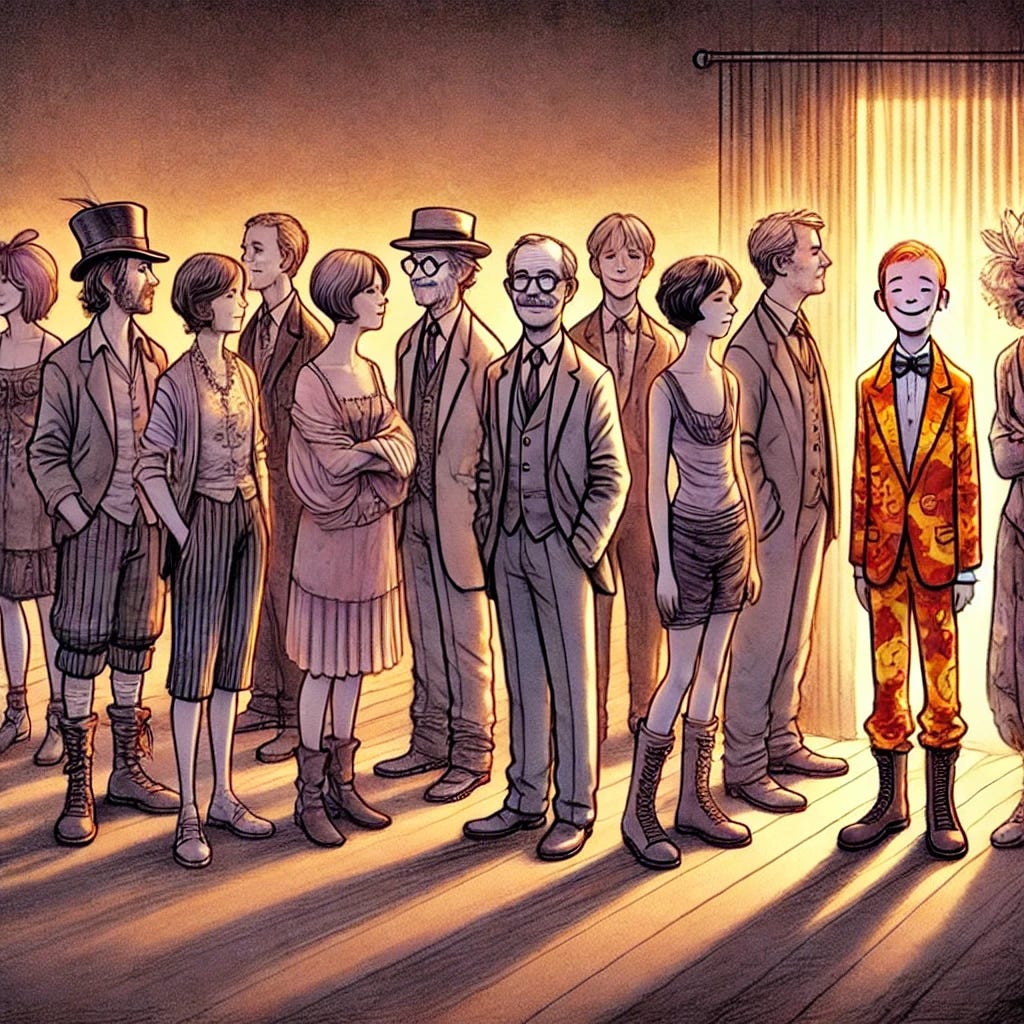Outcasts, Weirdos and Freaks
On some level, we’re all freaks. Acknowledging that might help us to cut our fellow freaks a little slack once in a while.
Here’s another article I wrote in days gone by that I hope you’ll enjoy.
I went to hear a lecture on Friday night about the transcendental movement of the early to mid-1800s. As the lecturer spoke about the beliefs that grounded the various movements before and after transcendentalism, he touched briefly on southern fiction (Flannery O’Connor, Walker Percy, William Faulkner, etc.), saying those authors often used characters who were outcasts, weirdos and freaks to speak the truth into a situation.
He quoted O’Connor as saying, “Whenever I am asked why Southern writers particularly have a penchant for writing about freaks, I say it is because we are still able to recognize one.” I found a fuller context of this quote on a blog called The Reformed Reader, where O’Connor goes on to say, in part, “To be able to recognize a freak, you have to have some conception of the whole man. And in the South, the general conception of man is still, in the main, theological.”
In other words, they recognized freaks because their theological understanding of man drove them to examine their own hearts and on some level, we’re all freaks, so it's easy to spot another one. Some of us are freaky looking. Some of us have freaky mannerisms. Some of us have freaky beliefs.
Usually, we find other freaks of the same ilk to hang out with so we can let our freaky hair down and pretend we aren’t freaks. They don’t have to agree with us about everything or even look like us necessarily; they just have to accept us – think Cheers, Friends, Seinfeld. Who among us hasn’t wanted to live in one of those worlds?
While I’m not a Lady Gaga fan, I’m intrigued by her story and her fanbase, whom she refers to as “little monsters.” According to a story in New York Magazine, she began working with a record producer to find her sound, style and look. One of those experiments led her down the Michelle Branch-Avril Lavigne singer-songwriter route, but it didn’t work.
Wendy Starland, a singer who was responsible for connecting Gaga with the producer, pointed out why it didn’t work, “Those artists are usually classically beautiful, very steady, and more tranquil, in a way.” At this point, Gaga wasn’t into fashion. She wore leggings and sweatshirts and she came into the studio a couple of times in sweatpants.
Wanting to be a star, she eventually went on to study trends in pop culture and she re-made herself as a performer rather than a singer. After she became a star, she began referring to her fans as “little monsters,” which she means in the most affectionate way. She knows how it feels to not fit in. She even wrote a manifesto of little monsters, and she closed it this way:
When you’re
lonely,
I’ll be lonely too,
And this is the fame.
Lady Gaga
Notice how she put the word “lonely” way out by itself? She knows how many of her fans – the outcasts, weirdos and freaks – feel, and while they, like other outcasts, weirdos and freaks find comfort in the company of one another, they also feel the same isolation the rest of us freaks of different stripes feel when they aren’t together.
On some level, we’re all freaks. Some of us are freaky looking. Some of us have freaky mannerisms. Some of us have freaky beliefs. Acknowledging that might help us to cut our fellow freaks a little slack once in a while.
If you enjoy the reflections in this newsletter, you'll love Lee's three-book collection, Finding Common Ground. Through heartfelt essays, Lee dives deep into love, loss, and our shared longing for human connection. It's a journey that resonates with anyone seeking meaning in the everyday moments of life.
Here are some tidbits you might find interesting this week:
If you are in the Omaha, Nebraska, area, I’d love to meet and sign a book or two for you tomorrow (September 21) at the Papillion Public Library Author Expo. You can get more information on my Facebook page. I’d be thankful if you’d like my page while you are there.
“Perhaps genuine hospitality is a frozen pizza in the oven, a messy house, and a question asked after a long day: How are you? Really? Tell me the truth.” -Hannah Bencher, The Monday Club
I learned this week that Crossway has released their scripture journals in spiral-bound editions. That makes me so happy. Here’s a link to the Gospel of John.
“How will you choose to reconnect with the deeper roots of life today?” writer Kelly Chripczuk asks in this interesting article.
“You should sit in nature for twenty minutes a day … unless you’re busy, then you should sit for an hour.” -Becoming Minimalist website
When Lee isn’t writing essays, devotional books, or Christian fiction, he is a freelance editor, as well as a freelance journalist who has written hundreds of articles for various newspapers and magazines. He’s also a fan of NASCAR, baseball, tennis, books, movies and coffee shops.







My main insight into the transcendental movement was through the writings of Louisa May Allcott. Faulkner still remains a mystery to me. Perhaps I should reread some of his books. Aren't all artist types..ie: writers, freaks?
I'm all in favour of a freak flag. Like a Hobbit mark. That way we know for sure.
Hannah Bencher is a National Treasure!